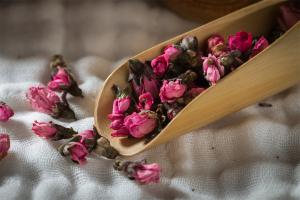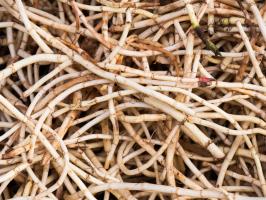Introduction
Black walnut trees (Juglans nigra) are native to North America and are prized for their timber, nut production, and ornamental properties. However, one of their distinctive traits is their allelopathic nature. This means they produce a chemical called juglone that can be toxic to many plants. Therefore, it is essential to choose plants that can grow with black walnut trees without suffering from juglone toxicity. In this article, we will explore some of the plants that can tolerate the presence of juglone and grow successfully with black walnut trees.
Plants that grow with black walnut trees
Despite their allelopathic nature, there are several plants that can tolerate black walnut trees' presence and thrive in their shadow. Here are a few:
Serviceberry (Amelanchier spp.) - These shrubs or small trees produce showy white flowers in the spring and edible berries in the summer. They can tolerate juglone and prefer partial shade to full sun.
Redbud (Cercis canadensis) - Redbuds are small trees that produce pink or purple flowers in early spring. They can tolerate juglone but prefer well-drained soil and partial shade.
Eastern redbud (Cercis canadensis var. texensis) - This species of redbud is native to Texas and produces beautiful pink or purple flowers in the spring. It can tolerate juglone and prefers full sun to partial shade.
American elderberry (Sambucus canadensis) - Elderberries are deciduous shrubs that produce edible berries in the late summer. They can tolerate juglone and prefer moist soil and partial shade.
Blackhaw viburnum (Viburnum prunifolium) - This shrub produces clusters of white flowers in the spring and dark blue berries in the fall. It can tolerate juglone but prefers well-drained soil and partial shade.
Plants to avoid planting near black walnut trees
While there are plants that can grow with black walnut trees, there are also many that cannot. Here are a few plants to avoid planting near black walnut trees:
Azaleas (Rhododendron spp.) - Azaleas are highly sensitive to juglone and can suffer from iron chlorosis if planted too close to black walnut trees.
Rhododendrons (Rhododendron spp.) - Rhododendrons are related to azaleas and are equally sensitive to juglone.
Pines (Pinus spp.) - Pines are not only sensitive to juglone but also produce chemicals that can be toxic to black walnut trees.
Birches (Betula spp.) - Birches are sensitive to juglone and can suffer from iron chlorosis if planted too close to black walnut trees.
Conclusion
Black walnut trees are beautiful and useful trees that can add value and diversity to your landscape. However, their allelopathic nature can limit the types of plants that can grow near them. By choosing plants that can tolerate juglone, you can create a beautiful and diverse landscape that complements the beauty of black walnut trees. We hope this article has inspired you to explore the many options available to you when planting near black walnut trees.

 how many times do yo...
how many times do yo... how many planted tre...
how many planted tre... how many pine trees ...
how many pine trees ... how many pecan trees...
how many pecan trees... how many plants comp...
how many plants comp... how many plants can ...
how many plants can ... how many plants and ...
how many plants and ... how many pepper plan...
how many pepper plan...

































